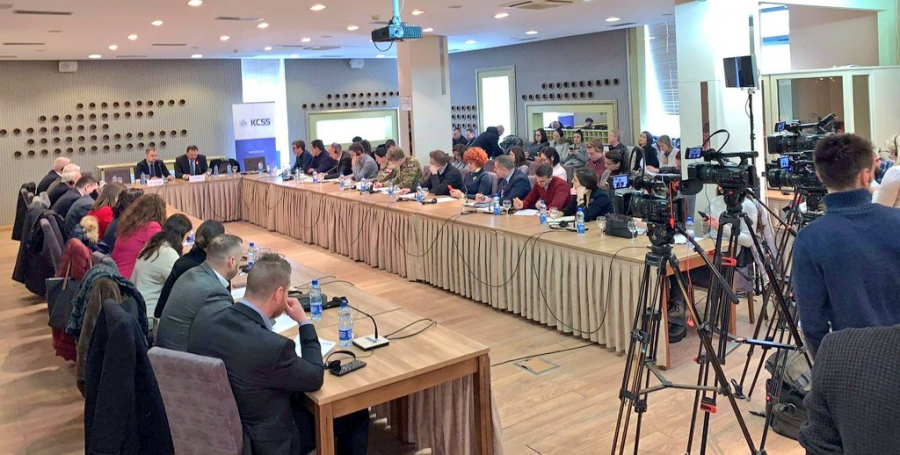7/02/2020

Kosovar Centre for Security Studies (KCSS) during a roundtable discussion has published today the preliminary findings of the report: Decontructing Russian Influence in Kosovo.
Through this report, the Author Mr. Elis Vllasi aim to examine Russia's objectives for undertaking influence operations in the country, the actors it relies upon to expand its influence, and the pathways through which Russian propaganda, disinformation, and manipulation spread.
The completed report will be published during March 2020, will address the following questions: does Russia seek to aid its Serbian ally in gaining a foothold in areas with Serb majority? Does it try to spoil the US and EU political, military, and economic investment in Kosovo? Or, is it promoting an alternative political model to the Western liberalism? In what ways does Russia use local Serbs, members of the international community in Kosovo, or local Albanians to do its work? What are the mechanisms through which Russia spreads its influence? Through interviews, surveys, and a focus group with local experts, Kosovo government officials, and international diplomats/military officials based in Kosovo, we seek to deconstruct Russian influence in Kosovo. Our ultimate aim is it build resilience in the local population against Russian propaganda, disinformation, and manipulation of public opinion.
This activity is organized in the framework of the project “Deconstructing Russian Influence in Kosovo” supported by a Fulbright Fellowship. The Fulbright Specialist Program is a unique opportunity for U.S. academics and established professionals to engage in two- to six-week, project-based exchanges at host institutions across the globe. Program of United States Department of State U.S. Embassy Pristina, Kosovo and World Learning. The preliminary key findings presented here are solely those of the author and in no way do they represent the opinions, views, or policy positions of the US Department of State – The Fulbright Program, Kosovar Center for Security Studies, Purdue Policy Research Institute, or Purdue University.